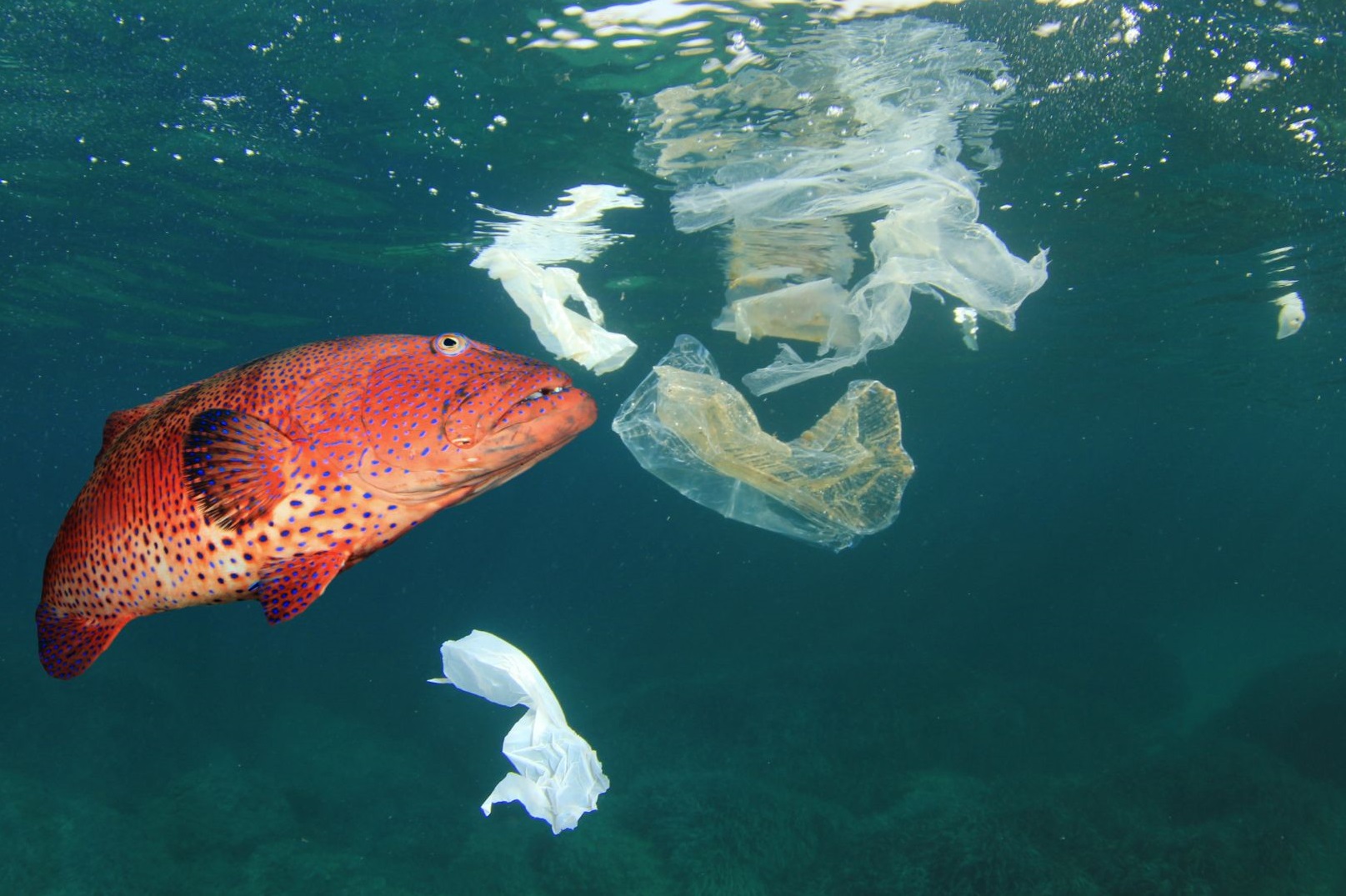
What is happening to us?
It is well known that all the activities humans have been carrying out since ancient times impact our planet. So far, so good, but we currently have a problem, and we have had a problem since the last century in particular, as these impacts are mostly negative and have gotten out of hand.
The pace of life, the way we consume, and the current system have brought us to this context with many challenges we need to achieve to survive. It was only a matter of time before the ticking of the planetary clock began to accelerate.
That said, and with an avantgarde perspective, we need effective measures and knowledge of the causes to learn from our mistakes and thus be able to face the different global crises we face, such as the climate, biodiversity, energy and food crises. When focusing on eating, for example, we realise that it is an activity that every human being has been naturally doing, day after day, since time immemorial. But how has the food system changed since the first hunter-gatherers? Well, that was years ago, and it is obvious that we no longer have to farm and hunt in nature to obtain food thanks to the development of markets, for example, a fact usually deemed a great advance. The problem is that the disconnection from and exploitation of the natural environment is so vast that we have reached a situation where we cannot fully guarantee the right to quality food, and sometimes not even to eat, let alone ensure it in the decades to come. As already mentioned, it is not only food but also biodiversity, climate and the source of energy, material and natural resources that are being targeted because they have not been and are not currently being managed sustainably in a way that guarantees society’s most fundamental rights.
Historically, each generation has had to face particular challenges. Economic crises, wars, plagues or famines forced people to change routines, modify how they lived and adapt to new conditions. The alternatives, if they had any choice, were death or, sometimes, emigration to other places and a new start. The point is that leaving all behind and emigrating was an option since the crises were local in scope.
But the crisis we are currently facing has a particular characteristic. It is planetary in scope, so we have nowhere to go. In this sense, we find ourselves in a situation analogous to the collapse of Easter Island’s societies. Overexploitation of resources and tribal warfare led to an ecological crisis that killed most of the island’s inhabitants, as they had nowhere to go. Their boats were too small and weak, and they did not know how to sail to the mainland, where they could have been saved. Their only option, though they were unaware of it, was to change their way of life to safeguard the available resources so that the island would continue to provide plenty of food, water and shelter, as it had always done.
The literature often holds the case of Easter Island as an example of the present crisis on an infinitely larger scale. The planet has always generated enough resources (water, food, land, energy, recycling) to meet the population’s needs. Whether we have used them wisely is another matter, but the availability was there. Yet, every physical system has limitations: with an ever-growing population and an ever-increasing hunger for resources, we are unwisely stretching the planet’s possibilities. You don’t have to be a genius to understand that this is an unsustainable situation in the long (or not so long) term.
The arrival of the Anthropocene, the era in which the impact of human activity is already affecting the dynamics of the planet, was only a matter of time.
It goes without saying that ignoring this situation is not a good idea, but neither can we overlook the immense difficulty of changing social dynamics, especially when there is a vested interest in preventing change and leaving the problem for later.
However, we have managed to take the first steps in the right direction. To begin with, we have identified the problem and made everyone aware of it. It may seem a minor fact, but without public awareness of the changes we are generating and the need to prevent and reverse them, it would be impossible to initiate effective policies to achieve this. The case of Greta Thunberg is paradigmatic. She is not the first activist to uphold the people’s mobilisation against climate change, but she has achieved a worldwide echo. She has become an icon, especially among young people. Her proposals may be simplistic, but she has succeeded in shifting the discussion from whether or not we need to implement solutions to the type of solutions we want to implement.
Probably the main problem, and also the most urgent, is the insatiable energy demand.

We want energy to be practical and cheap, a requirement that fuels such as oil and gas can perfectly satisfy. Unfortunately, we now know that the combustion product of these fuels is at the root of climate change. If we want to leave a minimally clean global ecosystem for those who will come after us, we have no choice but to change the current energy model. Of course, we will continue to demand energy, so we must look for new ways to generate it.
Regardless of how much we think about it, we have only two options: nuclear and renewable. The nuclear one generates a lot of energy, but it also produces unacceptably dangerous waste in the current state of technology. Renewable energy sources are still a long way from offering the performance we need. Although we will have to make trade-offs for some time by combining the different systems to optimise performance, we need more research and innovation to improve these technologies. It means allocating resources that would be difficult to commit without society being sensitised about the problem. On the other hand, it is hard to generalise and often to be aware of the profound differences among countries. More than half of the electricity in Catalonia comes from nuclear reactors, while renewable systems generate about a fifth. It could be worse. But in developing countries or elsewhere, such as some German Länder, with a large coal industry, a very high percentage of electricity generation comes from CO₂-generating sources. We may have good intentions, but the economy rules.
Changing how we get energy is of maximum importance. If we fail to reduce the rate of greenhouse gas emissions into the atmosphere, all the rest will be irrelevant. There is a tendency towards pessimism or even catastrophism; however, there is reason to believe we can solve the problem. We did so in the case of the ozone hole, which, although a comparatively minor challenge, required a worldwide agreement to ban the use of certain compounds. The ozone layer has now stopped degrading and is slowly recovering. Despite the repeated failures of climate summits, there is a motive for hope.
But this will not be enough. Even with climate change under control, we have other challenges regarding humankind and the planet that cannot wait. We need to rationalise and optimise water use. Water is an increasingly scarce commodity that will be an escalating source of conflict. Most water collection, transport and distribution systems are relatively inefficient and still allow too many practices that end up polluting rivers and aquifers. Once again, technological measures are needed, such as improvements in drinking water treatment, distribution systems and pollutant control, and social measures to make us understand the value of water and the need to optimise its use.
The same applies to more abstract concepts, such as biodiversity, often mentioned as a synonym for loss of environmental quality, but which also represents a determining factor for the future, since for every species that is lost, all possible direct uses and indirect benefits related to the maintenance of ecosystems that make the planet a suitable place for life disappear. Defending the environment is not limited to valuing cute animals, such as kittens. At the very least, we also need to appreciate the role of such animals as spiders, microbes or hyenas. A task in which education is fundamental, especially in an increasingly urban world.
Some people think that the answer to these threats lies in technology. To some extent, this is true. Traditional solutions were helpful in the past, but now we need new ways of relating to the planet, which will require full use of scientific and technological knowledge. But it is a mistake to think that this will be enough.
A change of mentality is needed to make us understand how we relate to the planet more sensibly.
Because maybe the technologies of the past no longer work, but how related to the environment, trying to make the most of it without exceeding nature’s regeneration ability is a compass we should have never forgotten.
About the author
Daniel Closa holds a PhD in Biology and is a researcher at the CSIC. He directs a research group on inflammatory pathologies at the Institute for Research in Biomedicine of Barcelona. He is the author of numerous popular science works, such as Blocs de ciència [Science Blogs], 100 mites de la ciència [100 Science Myths], Triviacat Ciència [Triviacat Science] or 100 secrets dels océans (100 Oceans’ Secrets, with Esther Garcés) and fiction works such as El camí de la pesta [The Path of the Plague]. For years he has been involved in different initiatives to popularise science.
This text includes editions by Anna Garcia Tortosa (Fundesplai)

